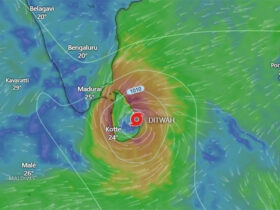Statement from the Brussels Workshop on Common Fisheries Policy Reform in the European Union and Small-Scale Fisheries: Paving the way to sustainable livelihoods and thriving fishing communities.
We, participants from 7 countries*, representing diverse small-scale fishing interests, NGOs, scientists and others, meeting in Brussels on Monday September 28, 2009 at the workshop on Common Fisheries Policy Reform in the European Union and Small-Scale Fisheries:
Stating our commitment to the sustainable use of fish stocks and of the wider aquatic and coastal environment;
Emphasising that small-scale fisheries represent the overwhelming majority of fishing activities in all EU Member States; provide the most employment; are highly adaptable; lend themselves readily to integration into the diversity of regional particularities across Europe; and
Declaring that if given fair treatment and due recognition, our sector can be viable, sustainable, and with a promising future;
Call on the DG Mare of the European Commission, on the European Parliament, on the Council of Ministers, on the Fishing Industry representatives, on the Trade Unions, on NGOs, on scientists, and on National and Regional Fisheries Authorities to:
Fair treatment and fair access to resources
1. Provide fishers and fishing communities dependent on small-scale, artisanal, inshore, inland, and small-scale fish and shell fish farming activities fair treatment in the allocation of access rights to resources and support services, with access to information and to the decision taking processes that affect their lives and livelihoods.
2. Ensure that marginalized groups, including small- island communities dependent on fishing, women in fishing communities and independently organized fishers and fish farmers are not unfairly discriminated against in the allocation of access rights to resources, and that measures are applied to ensure that their views are taken account of in the policy decision taking processes on fisheries.
Apply definitions of small scale fishing at the most appropriate level
3. Recognize and respect the nature, importance, potential and diversity of small-scale fisheries activities. Defining small-scale fisheries should be done and applied at the most appropriate level, be it regional, national or local. Such definitions should take account of regional particularities, technical aspects (fishing capacity), environmental aspects (selectivity, low discards, low seabed impact, low energy use etc), social aspects (decent work, high degree of benefit sharing, and links with local shore based activities and local employment, and the ownership and control of the operations).
Recognize and Valorise small-scale fisheries
4. Ensure that the reformed CFP recognises and valorises the contributions to social, cultural, economic and environmental sustainability provided by many small-scale fishing activities.
5. Recognize and respect the role of women in fisheries, valorise the contributions they make to the fisheries sector and to the wider community, accord the m their proper status as collaborating spouses, as economic actors, and recognize the importance of the social, cultural and economic activities they engage in.
Secure small-scale fishing and fishing community rights
6. Define and defend the rights of small-scale fishers and their communities in accordance with article 6.18 of the FAO Code of Conduct for Responsible Fisheries** and in line with regional specificities and priorities, and incorporate these rights into law on a just basis with the rights of other resource users***.
7. Ensure that rights based policies and rights based approaches to the management of small scale fisheries take account of the collective nature, and the livelihood, economic, social and cultural dimensions of their activities.
8. Avoid the use of rights based fishery management tools that promote individual interests at the expense of collective interests, especially those that incorporate market based allocation mechanisms. The logic of tools such as individual transferable quotas (ITQs), and the logic of artisanal fishing are not compatible.
9. Rectify past injustices and avoid future use of quota systems based on fishing track records, specifically where the landings of the small-scale sector have not been fully documented.
10. Ensure that fishing policies, quota and other management systems, and fishing methods do not cause discards of biologically, nutritionally and economically important fish and other aquatic species.
11. Indemnify fishing communities and their livelihoods from the destructive impacts of pollution, including oil spills and spills of toxic chemicals into the aquatic environment.
Apply a differentiated approach to small-scale fisheries
12. Apply a differentiated approach to sector specific management and regulatory problems. The need for capacity reductions in one sector should not result in the losses of fishing opportunities, employment or other benefits in other more sustainable sectors.
13. Apply the principle of subsidiarity to the management of small-scale fisheries, where management systems incorporate and are otherwise guided by local knowledge, experience and proven good practice.
14. Valorise local fisheries, ecological and oceanographic knowledge, and promote collaboration and information sharing between fishers and scientists in the process of informing decision taking processes in fisheries.
15. Based on existing good practices****, implement management plans, recovery plans and other regional and local management measures, such as for marine protected areas, in participation with local small- scale fishers, shellfish gatherers and their communities, ensuring that their access rights are protected. Such measures should be responsive to the demands of small-scale fishers, shell fishers and their communities, and should incorporate the monitoring of biological and sociological indicators in their design so that their social and biological effectiveness can be measured over time.
16. Support the establishment and effective functioning of co-management institutions with small-scale fishers and shellfish farmers, and provide the necessary training and support to enable such institutions to take on the necessary responsibilities and powers.
17. Support the derogation to the principle of equal access to a common resource by safeguarding the 12 mile zone (and other areas exploited by small scale fisheries) for fishery activities that are small in scale, environmentally benign, socially equitable, and which provide important cultural and economic contributions to the local communities.
Develop and apply appropriate measures for sustaining and diversifying livelihoods
18. Provide access to subsidies and other support measures (credit, training, etc) on a flexible basis to enable existing small-scale activities and operations to renew their vessels and equipment, and where appropriate to switch to new technologies that are that are small in scale, and environmentally, socially and economically sustainable.
19. Take proper account of the inherent vulnerability and resilience of fishing communities in the reform process. Based on detailed impact assessment studies and baseline community profiles, provide and promote real alternative activities and livelihood
* The 67 participants included small-scale fishing representatives, fishermen, fisherwomen, workers in the fishing sector, NGOs and researchers from Iceland, the Azores, Madeira, and mainland Portugal, Canary Islands, Galicia, Cantabria, Asturias, Basque Country, the Mediterranean and Atlantic coasts of France, Ireland, England, Wales, and the Netherlands.
** “States should appropriately protect the rights of fishers and fishworkers, particularly those engaged in… small- scale and arisanal fisheries… to preferential access…. to traditional fishing grounds and resources in the waters under national jurisdiction.”
*** Industrial fisheries and other extractive industries, industrial and intensive aquaculture, real estate, construction, production and other industries, tourism, and so on.
**** Initiatives include the Prud’hommes de Pêche in the French Mediterranean, the marine reserves of Lira and Cedeira in North Spain, the Restinga Marine Reserve (El Hierero (Canary Islands), Mar de las Calmas, Spain), the Iroise National Park in West France, and the Mid Channel Agreement between France, UK and Belgium, and the Inshore Potting Agreement in Devon.




Leave a Reply